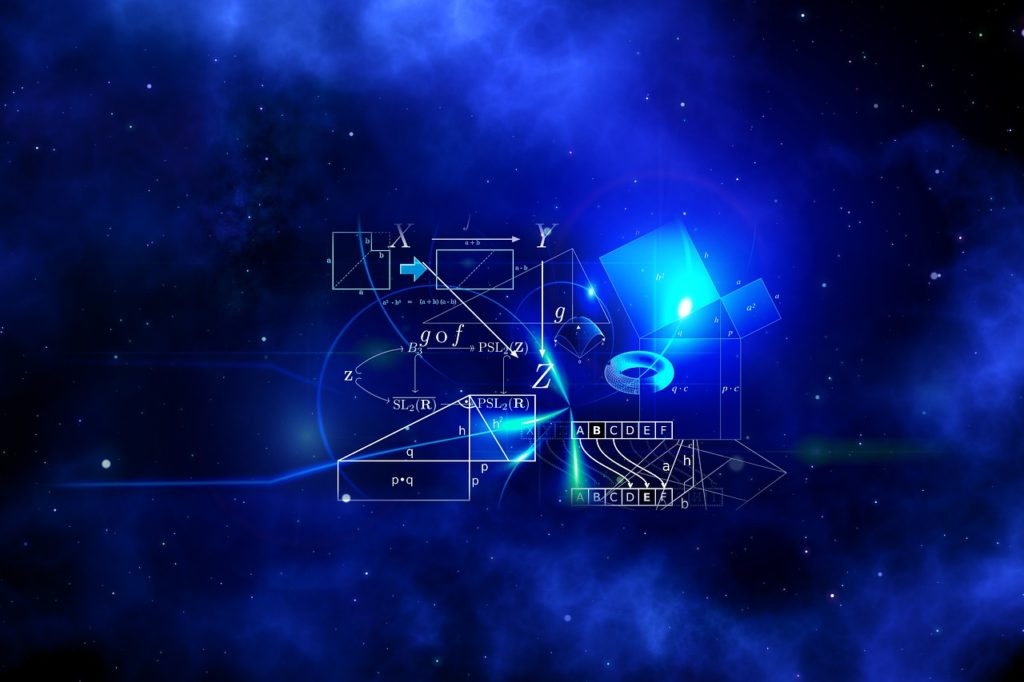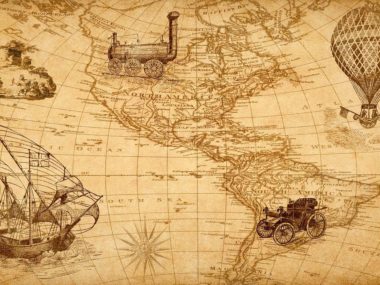Because He intended the creation to illustrate His attributes, God designed the creation—and humans—in a very deliberate and special manner. A number of things had to be true about the universe and human beings for humans to recognize the illustrations and infer from them the nature of the invisible God. These might be called the ‘knowability traits’ of the creation, and they include the following.
The following article is a from Devotional Biology: Learning to Worship the Creator of Organisms, Chapter 1.2, pgs. 22-25. The views expressed reflect those of the author, and not necessarily those of New Creation.
The physical world actually exists

Although the existence of the physical world might seem quite ‘obvious’ to most of us in the Western world, many of the worldviews of the Eastern world believe the physical world to be an illusion.1 Consequently, if people believe consistently with their declared worldview, a majority of the world’s population rejects the claim that a physical world actually exists in some place other than the imagination of the human mind.
But, believers know the physical world exists because God created it to illustrate His attributes. An actual physical world not only allows inferences to be made from it, but also allows verification of those inferences.
Human senses are reliable

Even though we know of instances where our senses can lead us astray (e.g. with mirages) and we know that we can use the senses to lead others astray (e.g. as illusionists), human senses must be generally reliable so that humans can correctly perceive revelation from His creation. From this we can then conclude that the physical world that we perceive is the physical world that actually exists.
The creation is ordered

For the creation to illustrate something there must be some sort of structure or order to carry that illustration.
The order of creation is simple enough to be understood by humans and the human brain is complicated enough to understand creation’s order. Although a full understanding of God would certainly be outside the capability of any finite being, God still wants us to understand something about Him. This means He chose to illustrate understandable things, created the universe in such a way as to illustrate those concepts in understandable ways, and constructed our brains in such a way as to comprehend those concepts.
We can thus conclude that the order we perceive in the creation is the actual order that is there, and not un-naturally imposed upon the creation by our minds.
Regularities of the creation can be detected and understood in the course of individual human lifetimes

Humans have long recognized that there are consistent patterns in the creation. It is almost as if there were rules or laws that things in the universe must obey. This actually seems quite reasonable, for the God of Scripture is a personal God with reliable and consistent behavior, Who desires very consistent behavior of others.
If the creation mirrors God’s nature, the creation might be expected to have regular behaviors of its own. And, since God desires that each individual human know Him, it is reasonable to assume that He created at least some of that order and some of those regularities in such a way as to be detectable in the span of one individual’s lifetime.
Regularities of the creation are consistent across the entire universe for all time.

Since God is an unchanging God, creation’s order and regularities should be consistent through time. And, since God desires to be known by all people, no matter where they are and no matter when they live, the law-like patterns of the creation ought to be true across all space for all of time.
The order of the creation, including all its regularities, is unified

Since God desires us to recognize the one true God in the creation, all its illustrations will point to the same God. Because there are many and various facets to God’s character, there are probably many and various illustrations of His character in the creation. As our understanding of
these illustrations increases, we would expect that they will weave together as threads in a tapestry into a coherent, interlocking picture of the God of creation.
We can gain truth and understanding by studying the creation

Since God has created the physical world to teach us something about Him, it is reasonable to assume that studying the creation will lead to truth and understanding. At the very least we will gain truth and understanding about God.
There is intrinsic value in studying the physical world

There is perhaps no other endeavor as glorious and fulfilling as seeking God. The more we know of Him, the more awesome we realize Him to be, the more awed we are in knowing Him, and more benefited we are in becoming like Him.
Since He created the physical world to teach us about Himself, better knowing the creation leads to better knowledge of God. There is great value in studying the physical world to better know its Creator.
Truth is advanced by continual study of the creation

Since God is so much greater than we can understand or imagine, it is likely that He put enough truth in the creation to keep all humans challenged for all time. God has authored His word in such a way as to provide simple truths for children, deeper truths for those older in the faith, deeper truths still for those who diligently study, and even deeper truths to challenge those who spend lifetimes in study.
Likewise, God has designed His creation with simple truths for all, deeper truths for those who seek, deeper truths still for those who diligently study, and even deeper truths to challenge those who spend lifetimes in study of His creation.
Truth about the unseen can be inferred from the study of observable things

God created observable things so that we could understand those attributes of God that we cannot see. We infer from this that there is probably much that exists that we cannot see, and we are justified in inferring the nature of those unseen things from the things we can see.
For every event there is a cause

God is a God of cause and effect. He wills and it occurs, He speaks and it is done, He promises and it is true, He redeems and we are His. The universe itself is an effect which resulted from His creation, and He has built the law of cause and effect into the creation as one of its regularities.
Just as we are supposed to infer the cause of the universe’s regularities (as illustrations of His character), so also we are justified in seeking cause for effects that we observe in the creation.
Human language is capable of describing, understanding, and teaching truths about the creation

The same God Who created the creation so we could recognize His character in it, gave us language. It is reasonable to assume that the language He gave us has been created in such a way as to make it possible to describe the creation and the attributes of God illustrated in that creation. It is reasonable to assume that that same language has been designed so that we can reliably pass on information about that creation to others.
Furthermore, the same God Who gave us language, spoke the universe into being by the word of His mouth. Not only should human language be capable of describing the universe, but human language itself should be similar to the structure of the creation. This would explain why mathematics—a language created by humans—has been so successful at approximating the very structure of the creation.
God’s desire to illustrate His nature in those things He made yields quite an astonishing creation. Such a world is not the expectation of naturalism. Although our survival might suggest that our senses must be somewhat reliable, naturalism gives us no good reason to believe that the physical world’s order just happens to be simple enough for us to understand2 and our brains just happen to have evolved enough to be sufficiently complex to understand it.
Nor in naturalism is there reason to believe that the order of the universe should be comprehensible in the course of a single human lifetime, or that the order is unifiable. In naturalism there is no good reason to believe that the regularities of the physical world are unchanging—let alone consistent across all time and space. For naturalism it is even more incredible—or even presumptuous—to believe that language humans invented happens to correspond with the structure of the entire universe.
Yet, after centuries of studying the physical world, it does seem as if the universe is understandable. It does seem as if the regularities of the universe are consistent across time and space. And more and more of the regularities of the universe have been unified. And it does seem as if mathematics comes astonishingly close to mimicking the very structure of the universe. The universe seems to be designed just as the Bible intimates—in such a way as to illustrate the very nature of its Creator.
In fact, belief in such a universe led to the origin of science itself. When people acknowledged that the universe not only existed, but was understandable and worthy to be understood, and, additionally, that humans were capable of understanding it, humans began studying the universe in order to understand it. This was the birth of what is called ‘modern science’.
It is no accident that this occurred in the wake of the Reformation in Western Europe, among a people who were freshly re-acquainted with the truths of Scripture. No worldview aside from a Christian (or biblical) worldview generates such an understanding of the physical world as to spawn the birth of modern science. It is unlikely that modern science could have been birthed in any other worldview. In fact, the birth and subsequent success of modern science is implicit confirmation of the truth of the biblical worldview.3
Learn More About the Origin of Modern Science
Footnotes
- Even in the western world, Plato (c426-c348 BC) pictured the physical world as shadows dancing on the wall of a cave—mere silhouettes of that which was truly real—the invisible world of perfect ideas, concepts, and forms. ↩︎
- Einstein is said to have said “The most incomprehensible thing about the universe is its comprehensibility.” ↩︎
- The characteristics of the universe that permit it to illustrate the nature of God turn out to be what philosophers of science call the ‘presuppositions’ of science. Presuppositions of science are those things that are assumed so that science can be done and those things that must be true for the pursuit of science to be reasonable. The biblical worldview is the only worldview known to provide reason to believe the presuppositions of science. ↩︎












Yes, it is amazingly clear that life processes (pathways, reactions, etc.) are reasonably structured and ordered) (I say this as a biology teacher).
God bless Kurt Wise
From the currently unstable country Ethiopia.